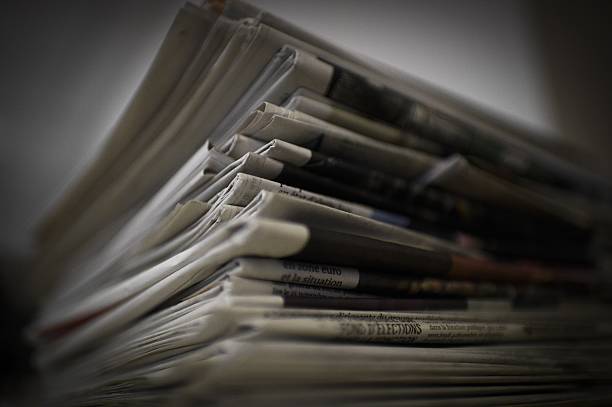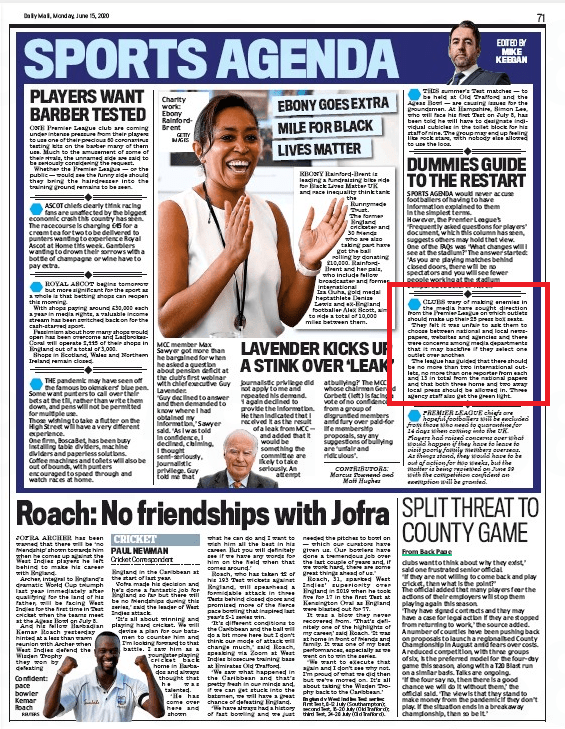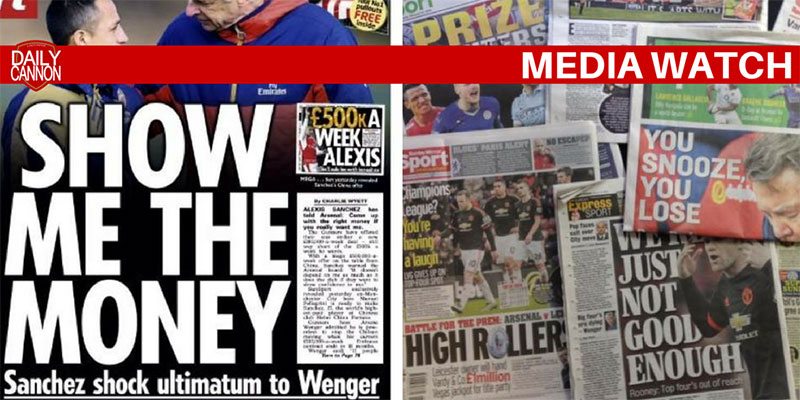The Daily Mail on Tuesday had a small snippet in their Sports Agenda section that gives away an awful lot about how some outlets do their jobs – and it isn’t good.

Ahead of the Premier League restarting this week behind-closed-doors, many decisions had to be made. Among those were ones regarding the press box, like how many journalists and reporters can be allowed in and how to avoid p*ssing those off who don’t get invited.
Therein lies a large part of the problem we have today with a lot of media who think they’re doing journalism but aren’t really.
The type of coverage any club (or politician or personality or news story etc) gets depends very heavily on how much access large sections of the media are given and how they are treated by the club/entity involved.
“Clubs wary of making enemies in the media have sought direction from the Premier league on which outlets should make up their 25 press box seats,” the Daily Mail wrote on a page that is edited by Mike Keenan.

“They felt it was unfair to ask them to choose between national and local newspapers, websites and agencies and there were concerns among media departments that it may backfire if they select one outlet over another.
“The league has guided that there should be no more than two international outlets, no more than one reporter from each and 13 in total from the national papers and that both three home and two away local press should be allowed in. Three agency staff also get the green light.”
It is the opening line of “Clubs wary of making enemies in the media…” that caught my attention. If spots are limited and you don’t get chosen, that shouldn’t impact how you cover a club or person. But it will.
That’s not how actual journalism is supposed to work.
I guess I shouldn’t be surprised. Many write stuff they know not to be true just to stay on the right side of clubs so they can retain access to players, when the real role of an actual journalist is to find out the truth and deliver that to the public in a way they understand.
Why should it be a surprise that they would subtly imply negative coverage could follow if they don’t continue to enjoy that access?

